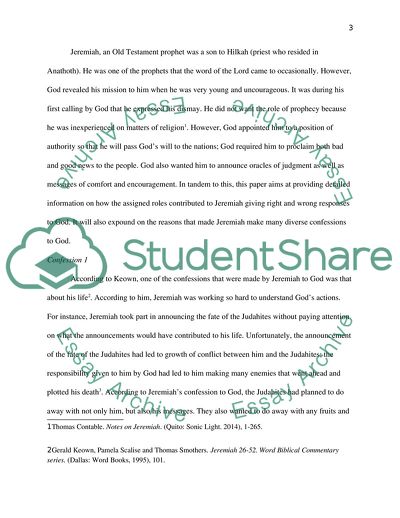Cite this document
(The Message of Jeremiah Literature review Example | Topics and Well Written Essays - 4000 words, n.d.)
The Message of Jeremiah Literature review Example | Topics and Well Written Essays - 4000 words. https://studentshare.org/religion-and-theology/1827340-jeremiahs-confessions-right-and-wrong-responses-to-god
The Message of Jeremiah Literature review Example | Topics and Well Written Essays - 4000 words. https://studentshare.org/religion-and-theology/1827340-jeremiahs-confessions-right-and-wrong-responses-to-god
(The Message of Jeremiah Literature Review Example | Topics and Well Written Essays - 4000 Words)
The Message of Jeremiah Literature Review Example | Topics and Well Written Essays - 4000 Words. https://studentshare.org/religion-and-theology/1827340-jeremiahs-confessions-right-and-wrong-responses-to-god.
The Message of Jeremiah Literature Review Example | Topics and Well Written Essays - 4000 Words. https://studentshare.org/religion-and-theology/1827340-jeremiahs-confessions-right-and-wrong-responses-to-god.
“The Message of Jeremiah Literature Review Example | Topics and Well Written Essays - 4000 Words”. https://studentshare.org/religion-and-theology/1827340-jeremiahs-confessions-right-and-wrong-responses-to-god.


